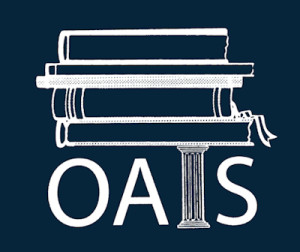Through the magic of Twitter, I was recently made aware of an op-ed published by the Charlotte News and Observer in late January by two folks who are officials with Public Schools First NC, which I assume is a group dedicated to promoting public schools. Linda Nelson of the North Carolina Association of Independent Schools penned an excellent rebuttal that was published a short time later.
In reading the initial op-ed, it struck me that the authors had lumped charter schools and private schools together as being essentially one in the same. Particularly in discussions regarding vouchers, this is something that happens quite often and certainly more often than it should.
Although much is made of Ohio’s regulatory climate, or lack thereof, for charter schools (here they are referred to in the Revised Code as “community schools”), that discussion is, or at least should be, far different than the discussion to be had regarding vouchers. I don’t think anyone would argue that there are way, way too many charter schools in Ohio that are doing a poor job. Some of them close up after a few months and thousands of tax dollars go by, while it can take entirely too long to shut others down. The accountability for tax dollars going to charter school and how those dollars are spent continues to be a problem. The dismal results of charter schools on state-mandated testing also requires a good explanation by charter school advocates other than the usual excuses. The role of Ohio’s charter schools and their success in filling that role are certainly worthy of continued discussion.
The use of vouchers and tax credit scholarships at private schools is another topic that is worthy of deep discussion by legislators. Since the establishment of the Cleveland Scholarship, we have seen a statewide expansion of vouchers for students served by schools deemed to be failing (EdChoice), autistic students (Autism Scholarship), special needs students (Jon Peterson Special Needs Scholarship) and now low income kindergartners and first graders (EdChoice expansion). The issues that go along with the vouchers (money coming from districts, measuring accountability, eligibility issues) will need to be refined for years to come.
I raise both of these because I believe it’s clear that they are separate discussions. Fixing charter schools to make them better at educating will have no impact on the effectiveness of the voucher programs, and the resolution of issues in the voucher programs will not mean that charter schools will get better. However, if you read the editorial issued by the folks at Public Schools First, they clearly mean to lump everyone together to make it Public Schools vs. Charters/Private Schools/Home schools/etc. They aren’t the same and lumping them together is disingenuous at best.
Why would someone purposely do that? Putting on my political hat, my guess is that the authors are aware the public generally confuses charter schools and private schools. Heck, many legislators do too. (If I had a dime for every time I was asked if I work for charter schools when I tell someone my employer is the Ohio Association of Independent Schools, I could lower next year’s dues for our member schools substantially!) When you lump charter schools (which as a sector have a mixed reputation) with private schools (which are generally well-thought of), you’re attempting to delegitimize the efforts to get more children to attend private schools.
My challenge to those who engage in this kind of argument would be a simple one: Call the schools out. If you think there’s an independent school that is not performing well, say it. If you think there’s a Catholic or a Christian or a Jewish school that is not educating children, use the name of the school. Put a name to the allegations. Even if the accusations are valid, which in a few cases may be the case, you will find that those mentioned are outliers, the exception rather than the rule. While there’s an argument to be made (at least in Ohio) that an unacceptably high number of charter schools are not performing, I know you will find that the number of private schools that meet that definition is far fewer in number and as a percentage of private schools overall. The uncomfortable truth for those lumping everyone together and subjecting all to so-called government accountability measures is that private schools are open because parents believe in them and the ultimate accountability of the marketplace trumps what the government can or cannot do to ensure quality.
The issues surrounding charter schools and voucher programs are real and need to be solved. An honest discussion is a good place to start.
